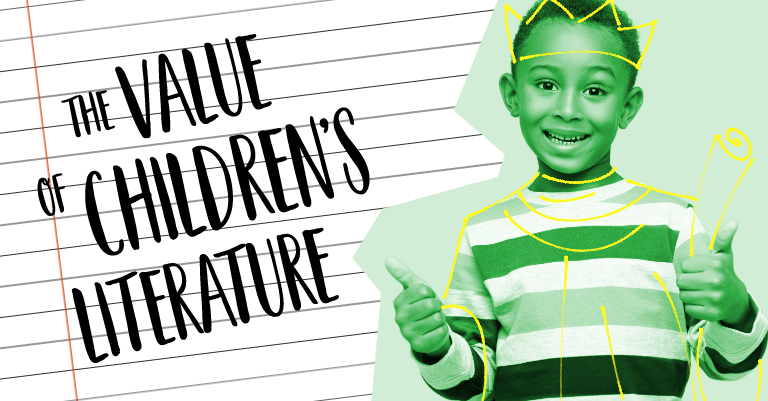Children’s Literature is important because it helps children develop their imagination.

We all know that reading is good for both adults and children, but Children’s Literature plays a very important role in a child’s development. Here we tell you why it is so important and the benefits and values it brings.
When the child is young, the first readings of the mother or father serve to strengthen emotional bonds. Children often look forward to the time of the day dedicated to reading to learn about a new story and share time with parents or caregivers.
Children’s Literature provides the most diverse examples of coexistence. It transmits customs, traditions, beliefs, and values that help the child’s integration with the society, environment, and historical moment in which they live. The ludic activity of children, such as fantasy and invention, is one of the essential sources that allows them to reaffirm their identity both individually and collectively.
Values and benefits of Children’s Literature
One of the great values of Children’s Literature is the introduction to the young reader of important concepts or themes that help form their critical thinking and reflective capacity: death, courage, honesty, religion, friendship, self-esteem, and the value of simple things… are all presented attractively and intimately, allowing children to build their first approximations to these basic notions.
Among the specific benefits of Children’s Literature, we can mention that the child who practices reading at an early age becomes much more familiar with writing, and vocabulary and learns to spell. They improve their verbal and communication skills. Reading can also improve children’s learning in most other areas. This is why Children’s Literature is essential when developing the child’s ability to understand, acquire new knowledge and interact with other children or adults.
Reading has many benefits for children. To a certain extent, reading improves the attention span of the smallest of the house. The taste for reading is determined from childhood by the influence of both family members and the entire educational environment. Knowing how to transmit the love of reading is essential to motivating children.
Generally, children do not like to read. They get bored or do it out of obligation, so the great challenge for adults is to instill the habit of reading so that they do it in a pleasant and meaningful way. The first step toward this challenge is to teach by example. Children tend to imitate what older children do, so parents and educators can show the little ones that they enjoy reading and that Literature can offer fascinating stories.
Children’s Literature at early age should generate pleasure and help to self-knowledge and interpret the world around the child. If this function is fulfilled, it is more likely that the child will naturally develop a taste for literary works as they grow up. Reading Children’s Literature facilitates reading in general and enhances children’s ability to learn, use their creativity, and be open-minded.

